Benjamin Netanyahu’s chief rival Benny Gantz quits Israeli government to try to topple it
Benny Gantz, a key member of Israel’s war cabinet quit Benjamin Netanyahu’s government, heaping domestic pressure on the Israeli prime minister as the war in Gaza rages.
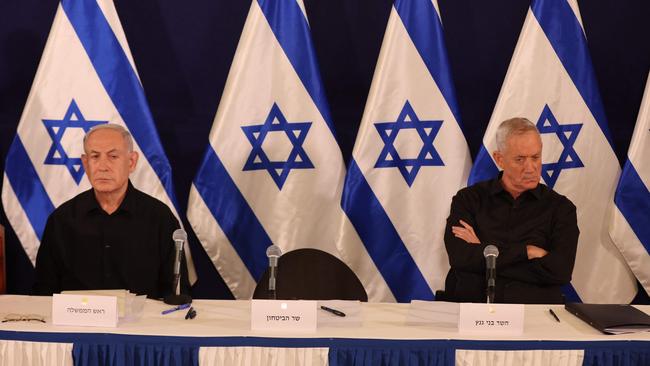
Israeli Prime Minister Benjamin Netanyahu’s top political rival quit the government on Sunday, in a move aimed at toppling his coalition.
But the strategy risked backfiring by empowering hawkish lawmakers less aligned with the Biden administration as Washington makes a renewed push to end the war in Gaza and free hostages held there.
Benny Gantz, who leads the centrist National Unity party and was one of three war cabinet members, said he was leaving the government due to a lack of long-term strategy for the war in Gaza, among other reasons.
“Fateful strategic decisions are stuck due to hesitancy and procrastination out of political considerations,” Gantz said, in televised remarks.
BREAKING: Israeli war cabinet minister Benny Gantz resigns saying Netanyahu is 'preventing real victory'.https://t.co/l5jkUXnnKu
— Sky News (@SkyNews) June 9, 2024
📺 Sky 501, Virgin 602, Freeview 233 and YouTube pic.twitter.com/1oEqQPLA2P
Gantz, a former head of the Israeli military, took his party into the government from the opposition shortly after Hamas’s Oct. 7 attacks. With Israelis mired in domestic unrest before the attack, the move was done to unify the country as it entered into a war. It also gave the Biden administration a like-minded moderate in the war cabinet who communicated often with officials from Washington.
Gantz’s departure from the government signifies that Israel’s unity at the start of the war has passed. The move is expected to fuel antigovernment protests and demands for early elections. Elections could happen as early as this summer, but more realistically early next year, if at all, analysts say.
How Gantz’s strategy will affect Israel’s handling of the war is unclear. Netanyahu could replace Gantz with hard-line lawmakers currently in the opposition or coalition partners who oppose the U.S.-backed Israeli proposal to end the war and free Israel’s hostages. He could also dissolve the war cabinet, bringing decision-making back to the regular security cabinet where his far-right coalition allies could have more sway. This could heighten divisions within the coalition itself as internal disagreements eventually become public.
Still, Gantz and Israeli Defense Minister Yoav Gallant have both publicly complained their seats at the war cabinet table haven’t given them much influence over the war’s management. Netanyahu, analysts say, along with the army’s top brass, is tightly in control of the war’s direction as well as the negotiations to free the hostages and end the war.
“Israeli policy is de facto being set by Netanyahu,” said Giora Eiland, a former Israeli national security adviser.
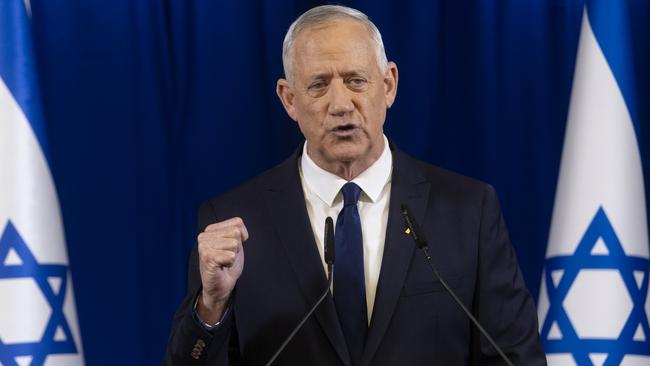
Some fear Gantz’s exit could threaten to exacerbate Israel’s political divisions when it is facing what many in the country see as a war for its existence.
“It’s like people standing in the gas chambers in Auschwitz and arguing who is on the right side,” said Abraham Diskin, a political-science professor at Jerusalem’s Hebrew University. “Israel has never been in such a fragile and dangerous situation.” The Israeli government shake up comes as U.S. and Israeli officials are set to renew a push to strike a deal with Hamas to free hostages and halt the war. But after an Israeli military operation rescued four captives Saturday, Israel’s strategic position in Gaza remains little changed, while the fallout may give both sides reason to harden their positions.
U.S. Secretary of State Antony Blinken is slated to sweep through the Middle East this week to invigorate efforts for a cease-fire and a broader deal with Saudi Arabia that would reduce Israel’s isolation and put the Palestinians on a path to their own state.
“By far the most effective, certain and right way to get all of the hostages out is to get a comprehensive cease-fire and hostage deal that President Biden described in public a few days ago,” U.S. national security adviser Jake Sullivan told CBS’s “Face the Nation” on Sunday.
Efforts to reach a deal already faced major obstacles before Saturday, and the repercussions of the rescue operation may lead to tougher stances in the negotiations. The large number of Palestinian casualties from Saturday’s raid prompted outcries in the Arab world and furious statements from Hamas, which said it would seek guarantees about the safety of Gazans before renewing talks.
Hamas’s media office said more than 200 Palestinians were killed during the operation to rescue four Israeli hostages in central Gaza, which included intensive aerial bombing in a crowded marketplace. Israel’s military says that number of casualties is inflated and that many among the dead were militants or civilians killed by militants who were firing at the soldiers whisking away the hostages.
Some in Israel argued that the successful rescue of the hostages was proof Israel can achieve its aims of freeing its captives and defeating Hamas through military means alone and without a deal that leaves Hamas in power.
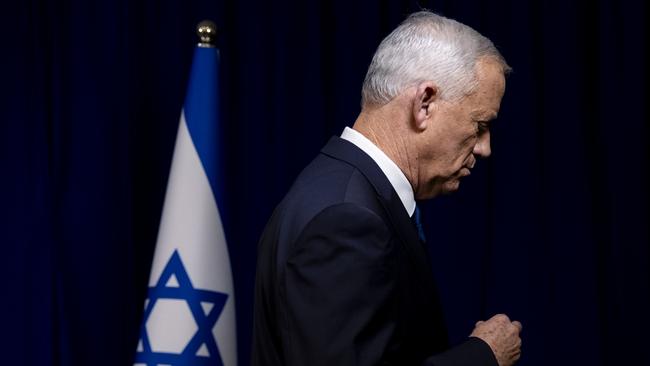
The Israeli government’s official position has been that military pressure is what will ultimately force Hamas to agree to a deal that Israel can accept, meaning that the U.S.-designated terrorist organization will no longer rule Gaza nor constitute an active threat to Israel once the war is over.
On Sunday, Israeli Foreign Minister Israel Katz said that Israel’s policy hadn’t changed and that it would continue to press Hamas militarily and pursue any avenue to free hostages while also pursuing a diplomatic solution to achieve its aims.
“Without military pressure, there won’t be any deal,” said Katz in an interview with Israel’s public broadcaster Kan.
The operation, said Yohanan Plesner, president of the Jerusalem-based Israel Democracy Institute think tank, could fuel demands in Israel for the government to agree to the deal on the table because it demonstrated that some of the hostages are still alive and how much their freedom means to Israelis. But overall, he said, there wasn’t likely to be any immediate change.
The rescue operation “has no strategic implications in terms of the grand scheme of things,” he said.
On Saturday night, thousands of demonstrators marched in Tel Aviv, protesting the way the government is conducting the war in Gaza and chanting “Now!” for a cease-fire deal.
Plesner said Saturday’s rescue operation could also strengthen those resolved to free hostages and defeat Hamas purely through military means.
The operation, wrote Israel’s hard-line National Security Minister Itamar Ben-Gvir in social-media posts, “shows there’s hope and it’s possible to defeat our enemies and return the hostages without giving in.” Israel’s military doesn’t share that point of view.
“We know we cannot do operations to rescue all of them,” said Israeli military spokesman Rear Adm. Daniel Hagari to reporters on Saturday. “This is why we need to do everything possible to make it happen that the hostages come back home.” Blinken is set to arrive Monday in the region, where he is expected to discuss the rescue operation and push for a cease-fire, according to an Israeli official. He will find that the country is facing many challenges beyond the war in Gaza, including a potential war with Lebanon and increasing international isolation, as well as political instability.
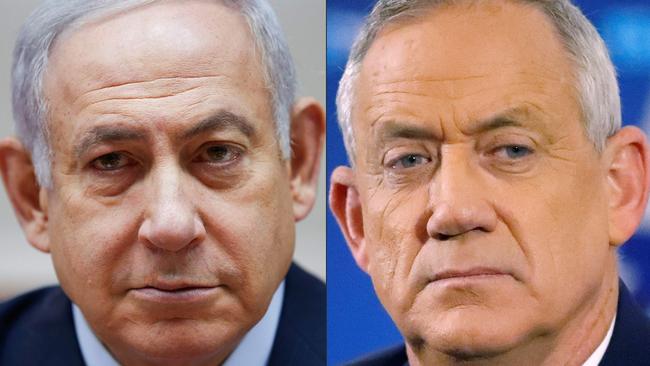
“Alongside the justified joy we must remember that all of the challenges Israel was dealing with...still remain,” Gantz said Saturday.
For Hamas, the rescue operation could reinforce its request for guarantees that Israel will cease its operations in Gaza.
Yahya Sinwar, Hamas’s leader in Gaza, has said the current proposal to release hostages -- broached by President Biden himself in a news conference a week ago -- is unacceptable for Hamas because, in the group’s eyes, it doesn’t guarantee an end to the war.
Netanyahu has criticized the way the proposal has been characterized by Biden, arguing the outline allows for Israel to renew the war if it believes later-stage negotiations to reach a cease-fire are proving futile.
Plesner said he thought Netanyahu, who has called for Israel to fight until total victory over Hamas, is avoiding giving his full backing to a deal until Hamas accepts it because he doesn’t want to lose political capital on an initiative that failed.
“There’s sufficient ambiguity in the wording for both sides to take a deal,” said Plesner. “The big picture is in order to get the hostages you need a grand bargain.”
Carrie Keller-Lynn contributed to this article.
The Wall Street Journal



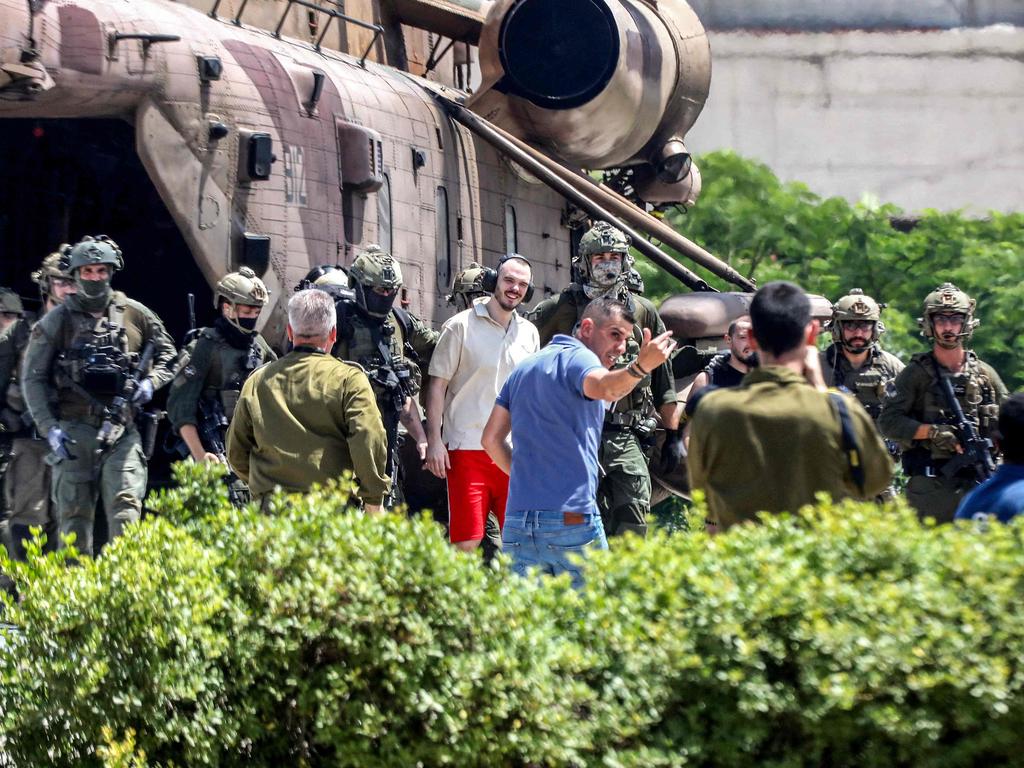



To join the conversation, please log in. Don't have an account? Register
Join the conversation, you are commenting as Logout